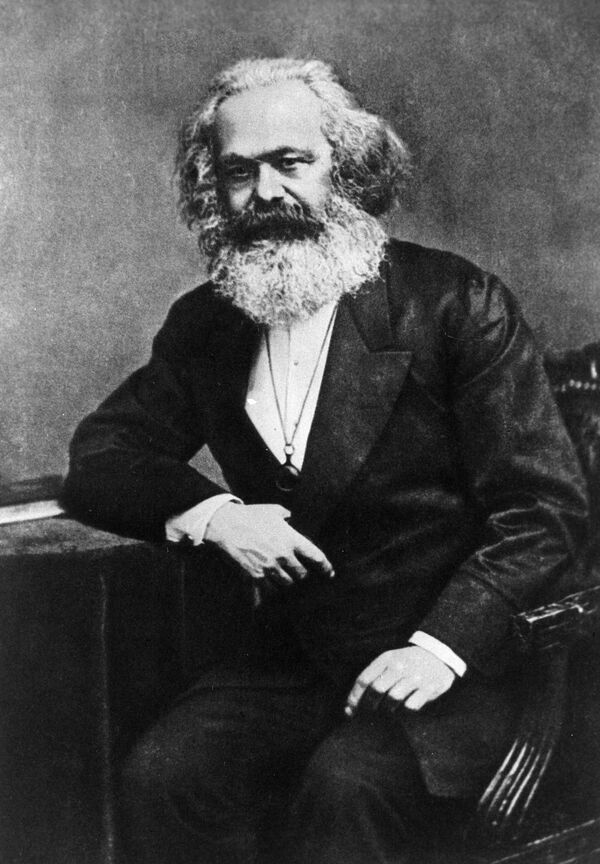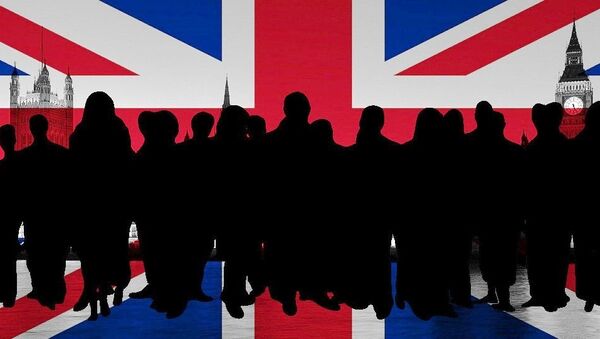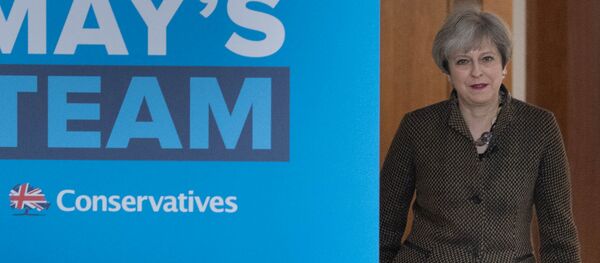The specter of Marx in an election to decide whether the current Tory Party incumbent Theresa May will remain Britain's prime minister on June 8, or whether Jeremy Corbyn will replace her, has featured prominently recently, employed to paint the Labour Party — specifically Corbyn and his shadow chancellor John McDonnell — as dangerous Marxist radicals intent on turning the UK into a Soviet Union mark II.
It would be laughable if not so serious in the context of a British establishment and political culture that has lurched so far to the right in recent years that any party or politician that articulates even a tincture of leftist views or ideas is regarded as the enemy within.
Marx, as most reading this will be aware, is one of the most important, if controversial, thinkers who every lived. In this respect, he belongs up there with Democritus, Socrates, Plato, Aristotle, Erasmus, Spinoza, Locke, Adam Smith, and David Hume. His ideas have inspired millions since they came to prominence at the end of the 19th century, along with revolutions and anti-colonial and anti-imperialist struggles across the world. It is no surprise that even now, despite the Soviet-led Communist bloc having passed into history almost three decades ago, and with China having abandoned hard-line communism with the passing of Mao, Marx's ideas continue to strike fear into the hearts of elites in the UK and throughout the West.

A philosopher, historian, economist and social critic, Marx dedicated his life to the revolutionary transformation of a world dominated by capitalism — in which workers (the proletariat) were treated as chattel, their labor exploited by the bourgeoisie in return for a miserly existence underpinned by poverty, immiseration and truncated lives — into a world underpinned by socialism in which material abundance would be distributed not according to human greed but human need.
In his most famous work, the previously mentioned Communist Manifesto of 1848, Marx writes:
"The modern worker… instead of advancing with industrial progress, sinks ever deeper beneath the circumstance of his own class. The worker becomes a pauper, and pauperism develops more quickly than population and wealth."
Surely such a disjuncture between the poor and the rich is incompatible with a country's right to consider itself civilized?
Where Marx got it wrong was not in his analysis of the history and inner workings of capitalism, but with his analysis that capitalism had reached the end of its historically progressive role when it came to innovation and dynamism as a mode of production responsible for the production of such a surplus of wealth and material goods that it had lifted humanity out of the realms of necessity into the epoch of abundance. However, private ownership of production and the surplus produced needed to be transformed into social ownership in order to organize its distribution for the benefit of all rather than allow it to remain in the hands of the few. For him this meant revolution.
What he failed to predict was the ability of working people to interdict in the capitalist system of production, distribution, and exchange by organizing themselves into trade unions in order to exercise their collective bargaining power against the bosses. Moreover the trade union movement in the UK produced the Labour Party at the turn of the last century, whose founding principles were based on the political advancement of the rights and interests of the country's working class.
The politics and worldview championed by Labour, which came to be known as social democracy, brought into being the welfare state, National Health Service, state pensions, council housing, and full employment after the Second World War. Yes, even under these radical reforms you still had rich people, just not as rich in comparison to ordinary working people.
Returning the Labour Party to something resembling its founding principles is, in sum, the reason the establishment in Britain has extended itself in slandering and attacking Jeremy Corbyn so aggressively. In truth, the Labour leader's politics have far more in common with Fabianism (soft socialism) than they do Marxism. Indeed, if anything, Theresa May and the Tories have more in common with Marx than Corbyn does, considering the class war they have unleashed against working people under the rubric of austerity — rolled out in response to the 2007-08 economic crisis and which has more to do with ideology than economics.
What this right-wing British establishment need to understand is that while you have nurses being forced to resort to foodbanks in order to feed themselves and their families in the sixth richest economy in the world, the ideas of Karl Marx will retain their relevancy. Indeed, along with the Sunday Times Rich List, such a state of affairs reveals that the threat to British society in 2017 lies not with Marxism but greed and inequality.
The views expressed in this article are solely those of the author and do not necessarily reflect the official position of Sputnik.




